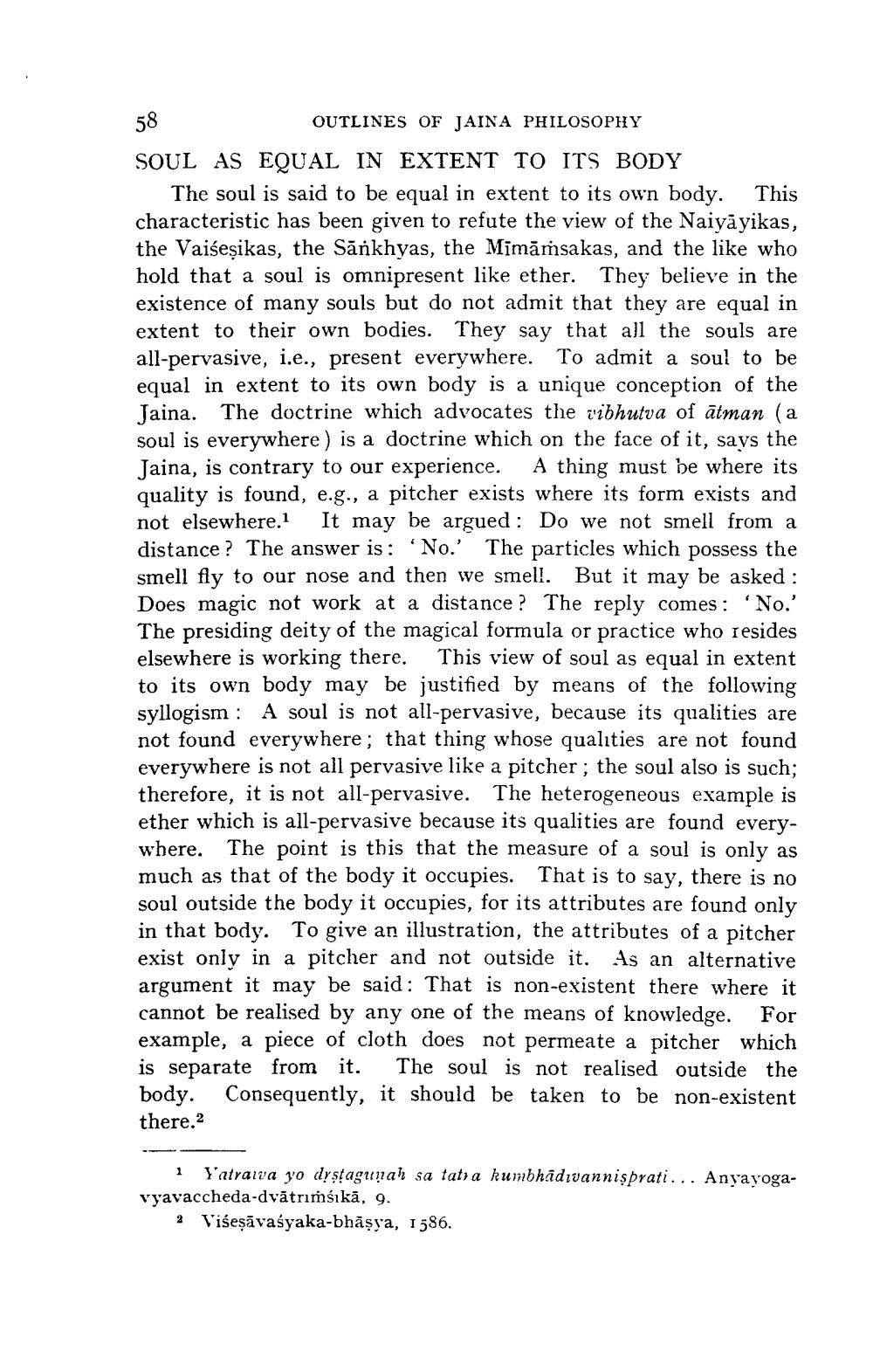________________
58
OUTLINES OF JAINA PHILOSOPHY
SOUL AS EQUAL IN EXTENT TO ITS BODY
The soul is said to be equal in extent to its own body. This characteristic has been given to refute the view of the Naiyayikas, the Vaiseṣikas, the Sankhyas, the Mimāṁsakas, and the like who hold that a soul is omnipresent like ether. They believe in the existence of many souls but do not admit that they are equal in extent to their own bodies. They say that all the souls are all-pervasive, i.e., present everywhere. To admit a soul to be equal in extent to its own body is a unique conception of the Jaina. The doctrine which advocates the vibhutva of atman (a soul is everywhere) is a doctrine which on the face of it, says the Jaina, is contrary to our experience. A thing must be where its quality is found, e.g., a pitcher exists where its form exists and not elsewhere.1 It may be argued: Do we not smell from a distance? The answer is: 'No.' The particles which possess the smell fly to our nose and then we smell. But it may be asked: Does magic not work at a distance? The reply comes: 'No.' The presiding deity of the magical formula or practice who resides elsewhere is working there. This view of soul as equal in extent to its own body may be justified by means of the following syllogism: A soul is not all-pervasive, because its qualities are not found everywhere; that thing whose qualities are not found everywhere is not all pervasive like a pitcher; the soul also is such; therefore, it is not all-pervasive. The heterogeneous example is ether which is all-pervasive because its qualities are found everywhere. The point is this that the measure of a soul is only as much as that of the body it occupies. That is to say, there is no soul outside the body it occupies, for its attributes are found only in that body. To give an illustration, the attributes of a pitcher exist only in a pitcher and not outside it. As an alternative argument it may be said: That is non-existent there where it cannot be realised by any one of the means of knowledge. For example, a piece of cloth does not permeate a pitcher which is separate from it. The soul is not realised outside the body. Consequently, it should be taken to be non-existent there.2
Yatrawa yo dṛṣṭagunah sa tatra kumbhadivannisprati... Anyayogavyavaccheda-dvātrimśikā, 9.
2 Viseṣāvaśyaka-bhāṣya, 1586.
1




